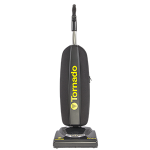Fair Labor Standards Act 101 (What it is and how it affects your operation)
As a building service contractor or housekeeping manager, you are responsible for understanding and implementing fair labor standards across your operation.
The Fair Labor Standards Act establishes guidelines around wages, record-keeping, and child labor standards, which affects your business and how you run it.
With changes coming to minimum wages and overtime rules in the United States, it is more important than ever to educate yourself about the FLSA, and create a strategy for your business going forward.
Fair Labor Standards Act
Since 2009, the Fair Labor Standards Act has required employers to pay a minimum wage of $7.25 per hour for covered, nonexempt workers on the regular payday for each pay period covered. If a non-exempt worker works over 40 hours in one work week, they are entitled to an overtime rate of 1.5 times their regular rate.
The FLSA does not require rules covering vacation, severance, or sick pay; premium pay for weekends or holidays; pay raises; a discharge notice or reason for discharge; meal or rest periods. However, states have been setting their own labor law reforms covering items such as paid and unpaid sick leave, minimum wages, pregnant and new mother accommodations, drug testing, and more.
It is up to you to follow changes and update your employee/employer guidelines to ensure they adhere to relevant laws and regulations. If you fail to keep up with changes, you risk penalizations such as employee lawsuits, and fines.
Discrimination and Equal Pay
Enforced by the Equal Employment Opportunity Commission, discrimination in employment will not be tolerated. Sex-based wage differentials between men and women are illegal when they are performing jobs that require the same effort, skill and responsibility in similar working conditions.
Laws around LGBT rights state that companies are required to provide same-sex married couples the same benefits they offer others. Discrimination around LGBT persons is unlawful and unpermitted.
Breaks
Rehabilitative breaks, between 5 and 20 minutes, are required for your employees to rest and meet basic needs during the work day. The FLSA does not require lunch or coffee breaks, but rehabilitative breaks (including getting a glass of water and going to the restroom) are considered compensable time under law, and count towards an employee’s total work week hours. They must also be considered in determining overtime pay.
Record Keeping
Employers are responsible for keeping records on items such as wages and hours to ensure labor regulations are met. The guidelines require you keep records on items such as your employers’ personal information, hour and day when workweek begins, total hours worked each day and workweek, total overtime pay for the week, and so on.
Overtime
Recently, the U.S. department of Labor proposed changes to the overtime rules set out by the FLSA. Whereas previously, a salaried employee would be entitled to overtime pay if they made less than $455 a week, the revisions mean they are entitled to overtime pay if they make less than $913 a week. The effective date of the final rule is December 1, 2016.
In the past, a handful of cleaning professionals have taken advantage of overtime pay laws. With the rise in the wage minimum threshold, you are responsible for ensuring your operation does not suffer financially.
Next steps for your operation
With changes in the overtime rules, employers must decide whether they will raise employee wages to above $913 a week, or limit workers to a 40-hour work week. Planning at this stage is essential so you are not penalized when the rule comes into play. If you fail to adhere to the new rule, you will face penalizations including fines of up to $1,100 per violation.
In the past, companies have faced lawsuits from employees who were not paid for overtime work. As a fair and lawful business owner, it is up to you to keep your workers’ hours at a fair and reasonable rate (40 hours) or pay them their worth. Distributing less hours may be beneficial in protecting your staff. Long hours can lead to fatigue, which in turn may result in a decrease in productivity, accidents, and injuries.
Cleaning professionals work hard and often their bodies are put under a lot of strain. If you decide not to cut down on hours, do your part to ensure long hours and rehabilitative breaks are compensated for.
Suggestions for planning around the new law
As an employer or manager, there are multiple things you can do to prepare for the new labor laws. To cut down on overtime pay, you may consider bringing in additional part-time employees to disperse tasks that were formerly handled by one cleaning professional. You can also cut out tasks that do not add value to the work at hand, and adjust salaries so that overtime pay will not be an issue.
You may also consider shifting the standard workweek. This would be beneficial if your business requires weekend events that result in overtime for your employers. Switching to a Thursday – Wednesday work week would allow you to give out hours on the weekend, but give employees time off on Tuesday or Wednesday to balance it out.
As an employer, you must take a good look at the labor standards your operation currently has. Ask yourself: Who is taking overtime? Why are they taking it? What tasks are they undertaking during overtime hours and can any of these tasks be minimized, delegated elsewhere, changed, or eliminated?
You need to strategize and plan for the future in a way that benefits your employees as well as your bottom line. Now is the time to make changes to protect the whole of your operation.
Whisper Quiet, Award Winning Commercial Cleaning Equipment
Increase Profits & Productivity with Your Equipment
Tornado Industries does more then sell equipment. We help solve facility cleaning challenges. Let’s talk about your cleaning challenges in person.




